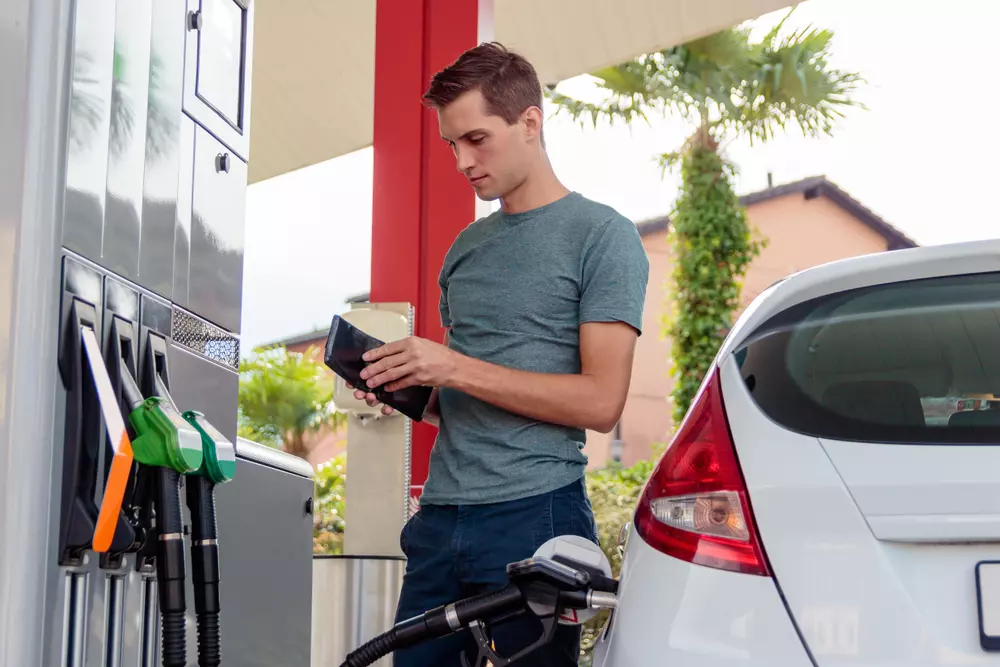We examine how the fuel price is set, whether a reduction in the fuel levy is likely, and what consumers can do to mitigate the effects of higher prices.
11 September 2022 · Fiona Zerbst

Russia’s ongoing war with Ukraine has played a large part in the recent hike in petrol and diesel prices. The higher price of oil globally can be directly linked to the crisis, and is likely to remain elevated for as long as the war continues.
The weakness of the rand against the US dollar has decreased South African consumers' buying power, and with no real income increases, inflation is hitting hard. Fuel is a case in point - prices have more than doubled since June 2020, and a full tank is now untenably expensive.
We examine how the fuel price is set, whether a reduction in the fuel levy is likely, and what consumers can do to offset the effects of higher prices.
Tip: Has inflation pushed your household into debt? Find out more about debt consolidation here.
How is the fuel price set?
The fuel price is comprised of four basic elements, according to Layton Beard, spokesperson for the Automobile Association of South Africa (AA).
Around one-third of the price of petrol goes to the government as taxes and levies.
“Together, the GFL and RAF levies add R6.12 to every litre of petrol sold at the pumps,” Beard explains. “Removing those two taxes would cut the petrol price to just under R19.”
Christie Viljoen, senior economist at PwC South Africa, says the GFL goes towards the state’s overall tax collections and is not necessarily used for transport-related spending. Some of these funds, however, go towards maintaining and expanding roads in the country.
The RAF levy is contentious, however. The RAF has experienced financial difficulties for some years and has recently capped the amount that can be claimed at R319,810.
“The AA is of the opinion that the RAF is not run efficiently,” says Beard. He adds that the RAF exists because of South Africa’s poor road safety record, with the annual cost of crashes amounting to approximately R200 billion.
Ernest North, co-founder of Naked Insurance, says it would be beneficial for the government to reconsider the future of the RAF and whether it’s the best way to fund and provide protection for accidents.
“Consumers pay significant amounts to fund an entity that remains in financial trouble, with limited effectiveness to fairly compensate victims,” he says.
However, it is unlikely the government will scrap fuel levies.
“It would have to find the money elsewhere, by increasing VAT and other taxes, or creating new taxes,” Beard says. “In some form or another, consumers will pay those taxes, and in ways that might hurt more than the fuel levies.”
Reviewing the fuel price
The basic fuel price (BFP) is comprised of a number of elements, including different prices in different areas of the country, as well as unregulated prices, as in the case of diesel. In the latter case, the government suggests a basic price, but fuel dealers can sell for more or less than that price, depending on supply and demand.
“The basic fuel price changes every month, while the added levies contributing to it are mostly static and change once a year. In other words, the basic fuel price is where price increases and decreases happen,” says Beard.
The AA has repeatedly called for a review and examination of the fuel price by the government, experts and other stakeholders.
“It is critical that this process be completed as a matter of urgency,” Beard says. “We need to know whether all elements of the fuel price are still necessary and calculated correctly.”
He points out that the BFP is based on the import parity pricing principle, in other words, what it would cost a South African importer to buy petrol from an international refinery, transport the product from that refinery, insure it against losses at sea, and land it on our shores.
“Currently, the BFP and the import parity price linked to oil are not correlated,” he says.
How motorists can cope with fuel costs
Although consumers are at the mercy of international events and currency fluctuations, there are ways to mitigate some of the pain of high fuel costs.
Viljoen says it’s a good idea to maintain vehicles to optimise performance, and keep tyres in good condition, and wheels aligned.
“For diesel vehicles, it's important to know where the cheapest fuel is available,” she says. “Unlike petrol, which is regulated at the pump, diesel prices can vary significantly from one service station to another.”
Beard’s top tips include carpooling (be sure to ask your insurer if you are covered for transporting others), negotiating with your employer to work from home where possible, and including your fuel expense in your budget so you don’t end up without fuel halfway through the month.
North says many people are working from home or sharing a car to save money, and some companies may be considering subsidising their employees’ fuel if they require their presence in the office.
“Given that we don’t yet know how high the interest rate can go, people should consider buying smaller cars that provide better value for money,” he says.
He recommends that cash-strapped customers consider increasing their car insurance excess to lower their premiums. “This may be risky, because you’ll pay more if you need to claim, but from a cash-flow perspective it helps to reduce your monthly payments,” he notes.
Tip: Find out which factors affect your car insurance and obtain a free insurance quote here.
Free tool

info@justmoney.co.za
4th Floor, Mutual Park, Jan Smuts Drive,
Pinelands, Cape Town, 7405
© Copyright 2009 - 2025 · Powered by NCRCB29
Terms & Conditions
·
Privacy Policy
·
PAIA Manual
View your total debt balance and accounts, get a free debt assessment, apply for a personal loan, and receive unlimited access to a coach – all for FREE with JustMoney.